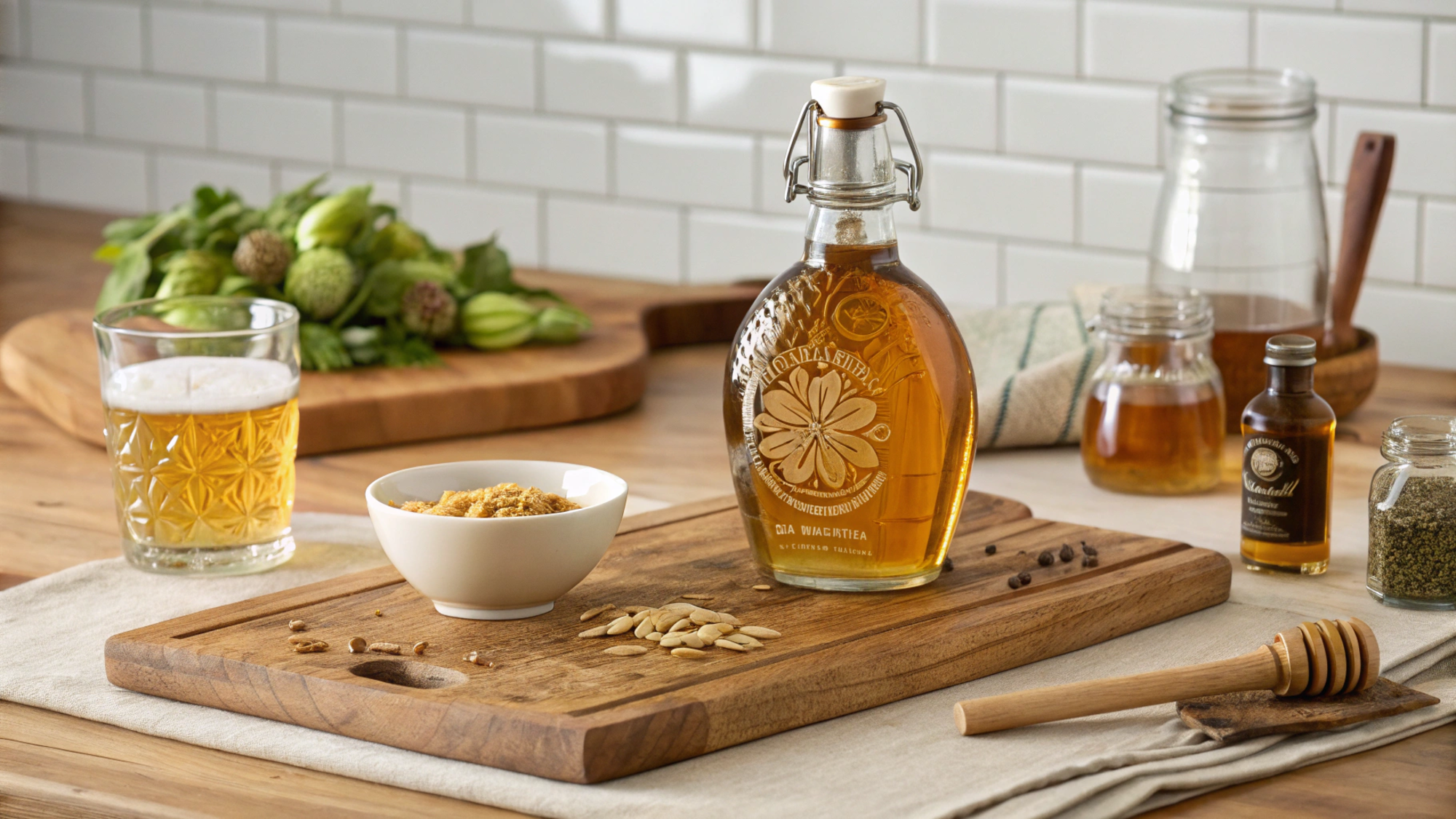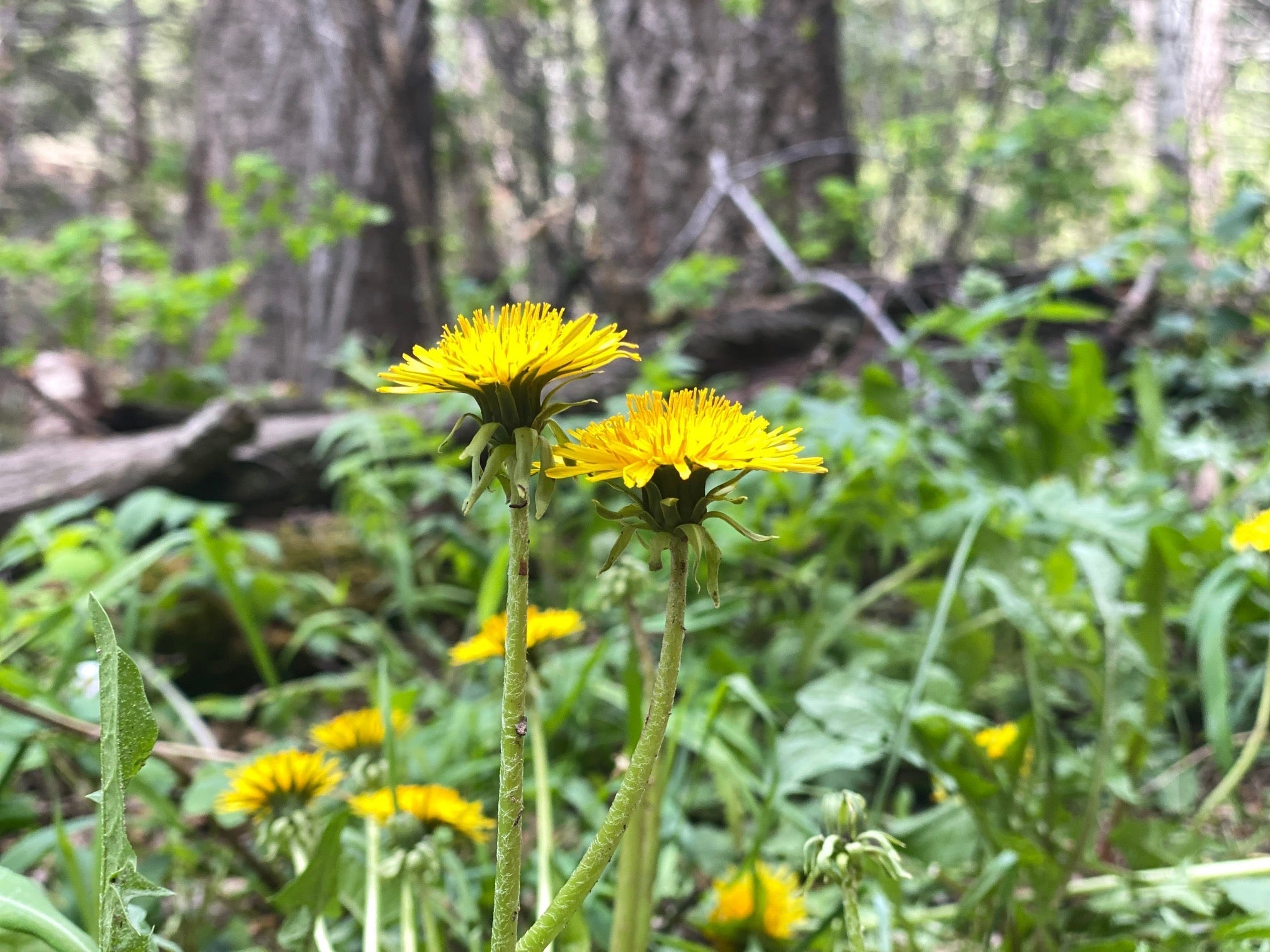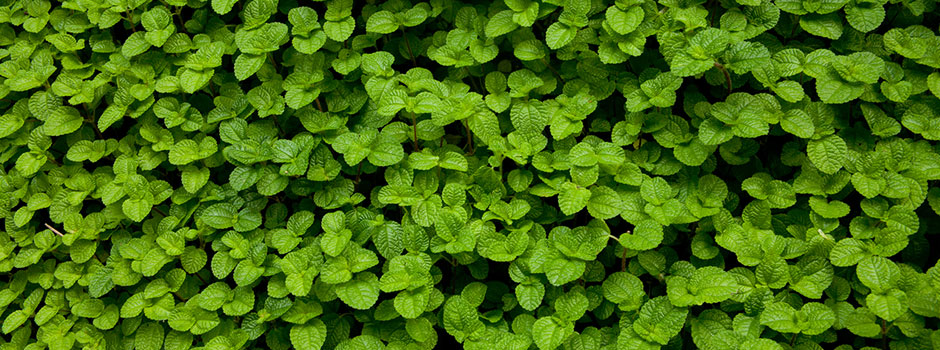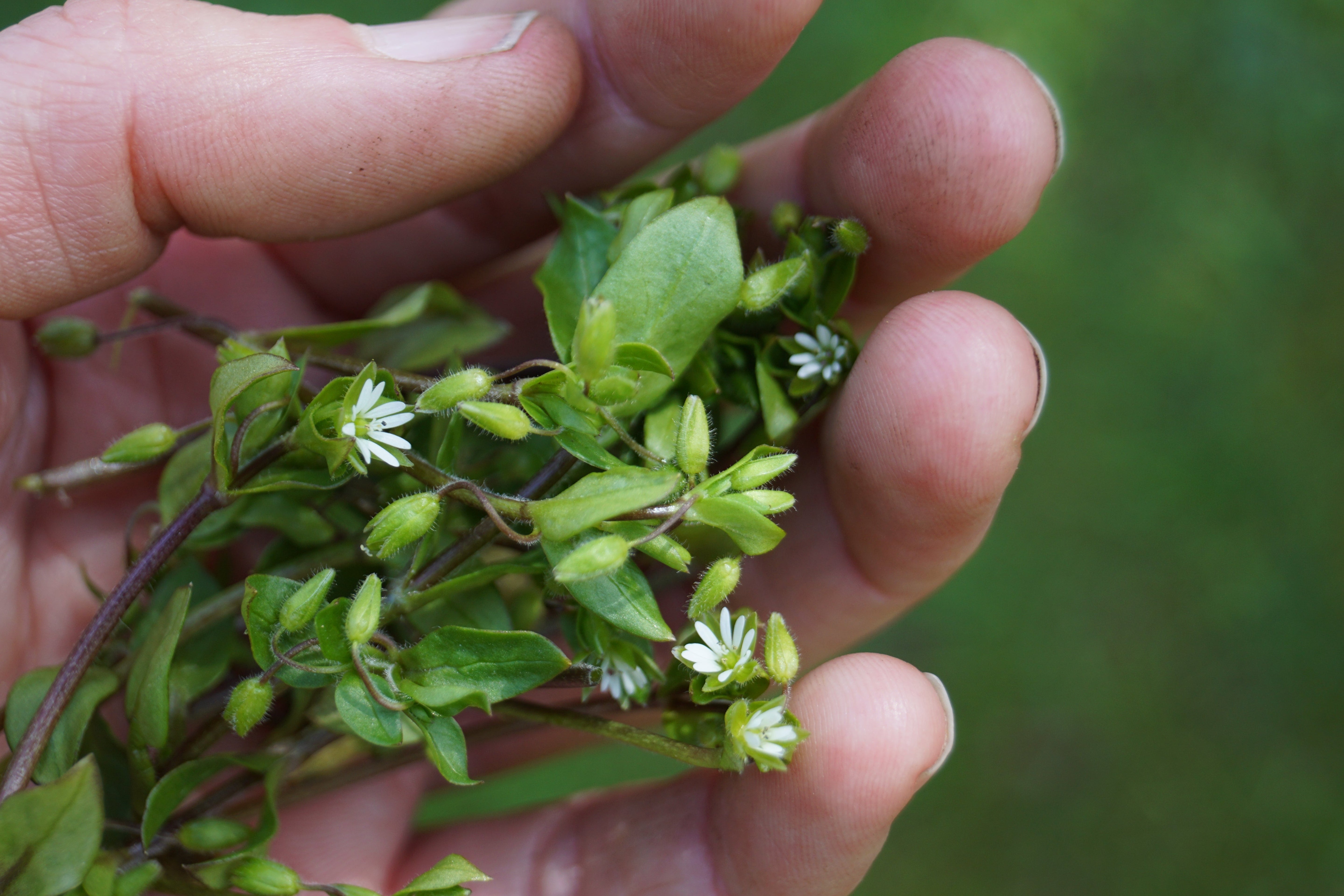
The Benefits of Hops: Your Natural Sleep Ally
Written by Rebecca Younger, CH, CDShare
If your nights involve staring at the ceiling at 2 a.m., mentally running through tomorrow's to-do list while your body begs for sleep, we feel you. And we’ve got a plant you need to meet.
Say hello to hops. It's the same hops that give craft beer its signature bitter kick, but these little cones have a secret life as one of nature’s most underrated calm-inducing, sleep-supporting herbs.
This climbing vine is honored by herbalists as a natural way to ease stress and help the body wind down. It’s gentle, effective, and rooted in tradition that stretches way beyond the pint glass.
If you’re craving deeper sleep and calmer evenings, hops might be the perfect herbal remedy for you. Let’s explore hops' benefits, what makes this plant so special, and how it might just change the way you think about bedtime.
Botanical Background
Before we get into how hops can support your rest and overall health, let’s take a closer look at the plant itself. Known to herbalists as Humulus lupulus, hops are part of the Cannabaceae family and thrive in temperate regions of Europe, Asia, and North America.
This vine climbs high with heart-shaped leaves and produces papery green cones that hold all the good stuff. Inside those cones are the compounds that give hops their calming reputation, the same ones that herbal traditions have leaned on for centuries.
What’s remarkable is how reliably this plant has shown up in different cultures and eras. From folk remedies to modern research, hops continue to prove themselves as a trusted ally for relaxation and sleep.
Historical Use and Cultural Significance
Long before hops flavored a pint of beer, people across the world were already turning to this climbing vine. For centuries, different cultures have found creative ways to include hops in their daily lives, often leaning on its reputation for bringing a sense of calm and ease.
Some examples of traditional use include:
- Roman soldiers are said to have used hop preparations to unwind after long campaigns.
- Medieval European monasteries cultivated hops not only for brewing but also as part of their herbal traditions.
- Native American tribes in the Pacific Northwest prepared hop teas and blends that were valued for relaxation.
- In Victorian times, pillows filled with hops were a common home remedy to help restless sleepers find more comfort at night.
This widespread use shows how consistently hops have been appreciated as a calming plant across generations. Today, researchers continue to study these traditional practices, building a bridge between ancient herbal wisdom and modern scientific curiosity.
Health Benefits and Medicinal Properties
Your stress response system is incredibly sophisticated, and sometimes it just needs a gentle reminder to slow down. This is where hops have earned their place in the herbal world, known for centuries as a plant that helps the body and mind ease into a calmer state.
When taken as tea, tincture, or other herbal preparations, hops supplements are valued for compounds that interact with the body’s natural relaxation pathways. One of those pathways involves GABA (gamma-aminobutyric acid), often described as the nervous system’s “brake pedal,” which helps signal when it’s time to rest.
Traditional herbalists and modern researchers alike point to several ways hops may encourage relaxation and better rest:
- Support for calm thinking: Hops support healthy GABA activity, which can help settle a busy mind at night.
- Gentle relaxation: The plant has a long history of use as a calming herb, often described as soothing without leaving grogginess the next day.
- Stress resilience: Hops have been used to help the body adapt to the mental and physical demands of daily life.
- Comfort for tension: Many traditions note hops as an herbal remedy for physical tightness that often comes with stress.
Within each hop cone are naturally occurring compounds that work together to give the plant its calming character. While different components have been studied for a variety of properties, it’s their combination that herbalists have valued most.
This natural synergy is what makes hops a trusted ally for encouraging relaxation, supporting restful nights, and helping the body find balance.
Modern Research and Clinical Studies
Interest in hops has grown beyond traditional herbal use, with modern researchers continuing to explore how this plant may support relaxation and rest.
For example, studies have examined how compounds in hops interact with the body’s natural sleep–wake cycle, particularly through pathways linked to the neurotransmitter GABA. This may help explain why hops have such a long history of use for easing tension and supporting sleep quality.
Other research has investigated the broader potential of hops compounds. Findings published in Molecular Nutrition & Food Research highlight xanthohumol for its antioxidant activity and possible role in supporting healthy metabolic processes such as lipid and glucose metabolism.
While more studies are needed, the growing body of research reflects what herbal traditions have long recognized: hops can be a supportive ally for relaxation, better rest, and overall well-being.
How to Use Hops Safely and Effectively
One of the joys of working with herbs is the many ways they can fit into your daily rhythm. Hops are no exception, and different preparations offer unique experiences depending on your needs and preferences:
- Herbal tinctures are concentrated and easy to add to an evening routine, offering quick absorption.
- Herbal tea blends bring gentle support along with the calming ritual of sipping something warm before bed.
- Capsules or standardized supplements provide consistency for those who prefer a measured, convenient option.
If you enjoy winding down with a soothing ritual, hop tea is a beautiful choice. You can brew dried hops on their own or combine them with other calming plants like chamomile, passionflower, or lemon balm. Many people find that incorporating herbal tea into their evenings helps signal to the body and mind that it’s time to rest.
Hops also pair well with other herbs, a practice herbalists often call “formula thinking.” Some favorite combinations include:
- Hops and passionflower for added calm and relaxation support
- Hops and chamomile for gentle digestive comfort alongside restfulness
- Hops and lemon balm for nervous system support with a bright, citrusy balance to hops’ natural bitterness
Exploring these blends can help you discover what feels most supportive for your body and routine. Herbalists have long celebrated the art of pairing plants together, and experimenting with different combinations can help you create a nightly ritual that feels both grounding and restorative.
Safety and Precautions
Hops are generally well tolerated, and many people enjoy them without issue. Still, as with any herb, it’s important to listen to your body and use them mindfully. A few people notice mild digestive discomfort when first trying hop preparations, especially tinctures taken on an empty stomach, but this often settles as the body adjusts.
Those who are pregnant or nursing should speak with a qualified healthcare provider before using hops, since the plant contains naturally occurring compounds with mild estrogen-like activity. It’s also wise to consult a professional if you have a history of hormone-sensitive conditions.
If you’re taking prescription medications, it’s important to be aware of possible interactions:
- Sedatives or sleep aids: Combining with hops may increase drowsiness.
- Hormone-related medications: Extra caution may be needed due to hops’ mild estrogenic activity.
- Blood sugar medications: Hops may influence glucose metabolism, so monitoring is recommended if you’re using both.
Always inform your healthcare professional about any herbal remedies you're using to avoid potentially beneficial interactions becoming problematic.
WishGarden Products Featuring Hops
At WishGarden Herbs, we specialize in liquid herbal extracts that bring together synergistic herbs, creating a team of plants that work in harmony to support your body when you need it most.
Liquid extracts offer unique advantages compared to dried herbs or capsules. A single liquid dose is quickly absorbed by the body, helping the plant’s beneficial compounds get to work right when you need them. Our extraction process also captures both the water-soluble and alcohol-soluble constituents of hops, delivering a full spectrum of support that traditional preparation methods may not always provide.
Hops show up in several of our most-loved formulas, each playing a unique role:
- Sleepy Nights & Fresh Mornings – Hops team up with other calming herbs to encourage deep, restful sleep while helping you wake refreshed.
- Serious Relaxer & Muscle Tension – Hops help ease stress-related tension and support a calm, balanced nervous system.
- Happy Ducts – With its natural role in supporting microbial balance, hops contribute to soothing clogged ducts while also offering immune support.
- Badass Bitters Digestive Aid – Hops’ natural bitterness stimulates healthy enzyme production and supports strong, comfortable digestion.
- Kick-Ass Biotic – Hops play a part in maintaining microbial balance while supporting immune function.
- Serious PM Cough – Hops bring both calm and immune support, helping promote rest while easing nighttime coughs.
Each of these blends reflects our approach to “formula thinking,” where plants like hops are thoughtfully paired with complementary herbs to bring you effective, whole-body support.
FAQs - Benefits of Hops Extracts
Do hops have health benefits?
Yes! Hops have long been valued in traditional medicine as one of nature’s calming medicinal plants. The hop plant contains bioactive compounds, including alpha acids and bitter resins, that give hops their characteristic bitter flavor and potential health effects. Modern research suggests that hops may support better sleep quality, relaxation, and overall balance. Some studies even point to potentially beneficial antioxidant effects, where compounds like xanthohumol help neutralize reactive oxygen species that can impact cell health.
What are the benefits of hops for sleep?
Hops are often referred to as “sleep hops” because of their relaxing properties. Herbalists and researchers alike note that hops may promote rest by supporting GABA activity in the nervous system. This calming effect makes hops a popular herbal remedy for people managing occasional sleeplessness, shift work challenges, or general restlessness. Unlike pharmaceutical sleep aids, hops are used as a gentle way to encourage better sleep without next-day grogginess.
What are hops extracts and how are they used?
Hops extracts are concentrated preparations made from hop cones, capturing the plant’s essential oils, bitter acids, and other active substances. These extracts can be found in dietary supplements, tinctures, and herbal tea blends. Liquid extracts are often preferred for their rapid absorption and single-dose administration. Many people also enjoy dried hops in teas or sachets, often paired with other herbs like chamomile or lemon balm.
What role do bitter acids play in hops?
The bitter acids in hops, mainly alpha acids and beta acids, are responsible for the plant’s signature flavor in beer production and non-alcoholic beer. Beyond beer making, these compounds may offer health benefits, including properties that support microbial balance in the human intestine, and digestive support by stimulating enzyme production.
Do hops have estrogen-like properties?
Yes, certain hops compounds, such as 8-prenylnaringenin, exhibit mild estrogen-like properties. This is why hops have traditionally been used to support women during menopause. Some women find hops preparations helpful for managing menopausal symptoms such as hot flashes and night sweats. Because of these effects, those who are pregnant, nursing, or have hormone-sensitive health conditions (such as breast cancer) should consult a healthcare professional before taking hops.
Can hops support metabolism or weight management?
Some studies suggest that compounds in hops may support healthy lipid and glucose metabolism, which can play a role in weight balance and metabolic health. Research on metabolic syndrome and insulin resistance has shown potentially beneficial effects, though more studies are needed to fully understand these health claims.
What are the potential adverse effects of taking hops?
Most people tolerate hops supplements well, but some may experience mild digestive upset, especially when tinctures are taken on an empty stomach. Because hops can act similarly to sedatives, combining them with prescription sleep aids, anti-anxiety medications, or alcohol may increase drowsiness. As with any dietary supplement, it’s best to talk with a healthcare provider to ensure hops are a good fit for your unique health conditions.
Your Path to Better Sleep Starts Tonight
Better rest doesn’t have to be complicated. Hops offer a gentle, time-honored way to support the body’s natural ability to relax, carrying with them centuries of traditional use alongside the curiosity of modern research.
Whether you brew a calming cup of hop tea, add a tincture to your evening routine, or enjoy a blend that pairs hops with other supportive herbs, you’re creating a ritual that helps signal to your body it’s time to unwind. These small, consistent choices can add up to deeper rest and a greater sense of balance over time.
The most effective sleep ritual is the one you’ll stick with. Start simple, notice how your body responds, and adjust in a way that feels right for you. With hops as part of your toolkit, you’re not just preparing for one good night’s sleep, you’re cultivating habits that nurture long-term wellness and harmony.
Rebecca Younger is passionate about herbs and women's health. She aspires to plant seeds of inspiration within her community about plant medicine and healthier ways of life. She studied Herbal Medicine at Herbalism Roots in Denver and is a certified Doula through the Matrona Foundation. She is the Brand Communications Specialist at WishGarden Herbs.
For educational purposes only. This information has not been evaluated by the Food and Drug Administration. This information is not intended to diagnose, treat, cure, or prevent any disease, or to sell any product.















